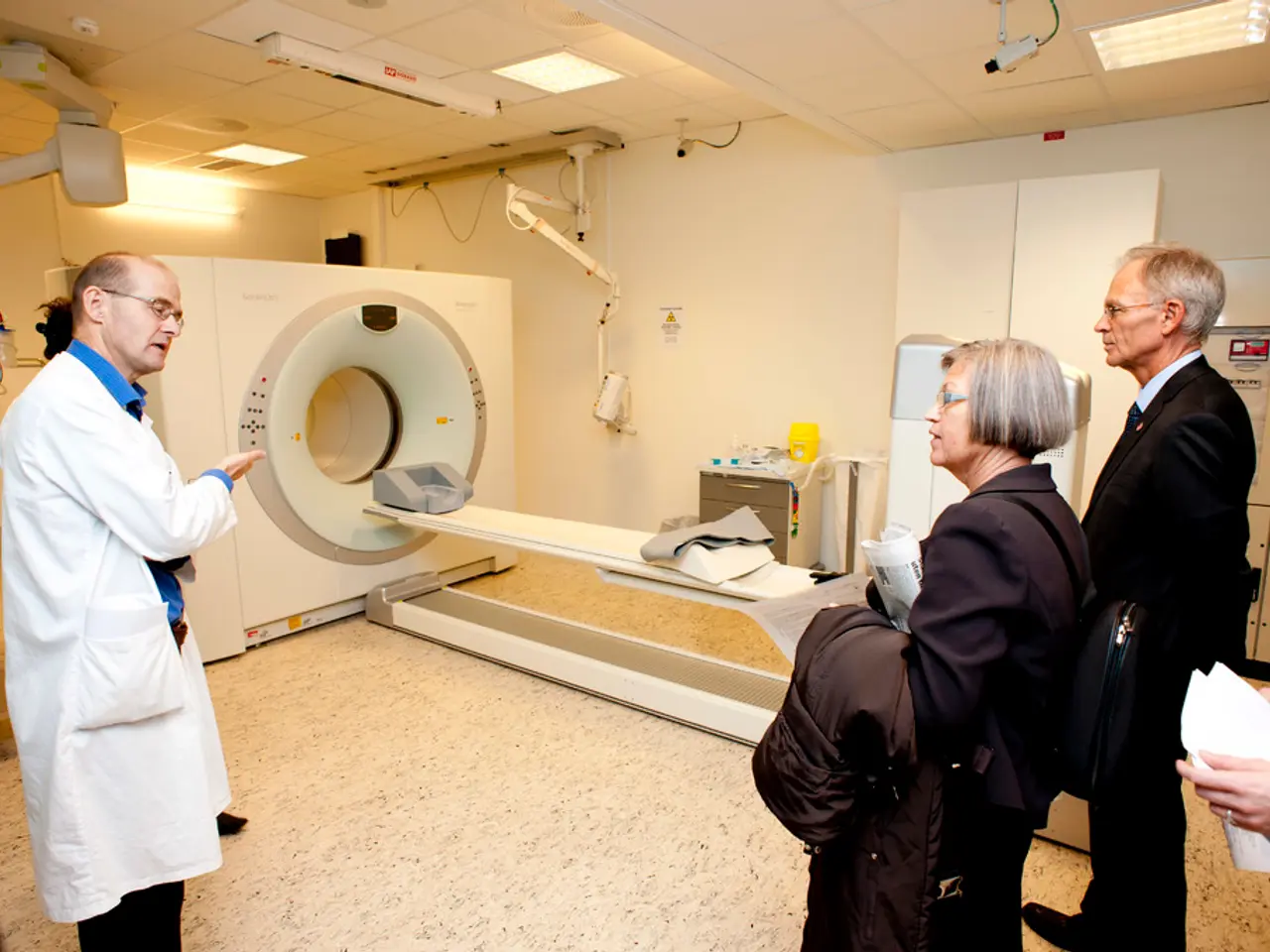2023 VIVE Summit Emphasizes the Need for Health IT Pioneers to Act with a Sense of Impatience Regarding AI Applications
In the rapidly evolving landscape of healthcare, Artificial Intelligence (AI) is increasingly being recognised as a game-changer. This was a key topic of discussion at this year's ViVE conference, and industry leaders are eager to explore the potential benefits AI can bring.
Tricia Coffey, Chief Health Information Officer for the National Institutes of Health Clinical Center, believes that AI will free up time, improve work quality, and contribute to a better work-life balance for healthcare professionals. She emphasises that AI will ensure physicians have access to clinical decision support and will help drive clinical research.
One of the current use cases of AI in healthcare is the deployment of chatbots and conversational agents. These AI-powered tools are used for patient communication, medication reminders, and health promotion content, enhancing patients' interactions with healthcare systems. Large language models like ChatGPT are making SMS communication more effective.
AI is also being utilised in diagnostic algorithms to assist doctors in diagnosing illnesses, improving the accuracy and efficiency of the diagnostic process. Workflow optimisation is another area where AI is making a significant impact, streamlining administrative tasks such as documentation and billing.
Personalised medicine is another area where AI is proving beneficial. By analysing genomic data, cancer stratification, and chronic disease prediction, AI can tailor treatment plans to individual needs, potentially improving patient outcomes. Clinical simulations are another area where AI is being used to enhance medical education, simulating real-world scenarios to improve communication skills and patient care.
Looking ahead, there are exciting potential use cases for AI in healthcare. Virtual and Augmented Reality (AR/VR) technologies are being explored for creating embodied conversational agents that can interact with patients in more human-like ways, potentially enhancing patient engagement and support.
AI is expected to play a larger role in analysing high-variance, high-volume data for better diagnosis and treatment planning, including advanced applications in genomics and personalised medicine. Developing solutions to address the fragmentation of healthcare data across different platforms and systems is crucial for maximising AI's potential.
Establishing standardised frameworks to evaluate AI models for bias and accuracy is essential for safe and effective clinical decision-making. This includes rigorous testing and stakeholder engagement to ensure fairness and reliability.
Ashok Chennuru, Chief Data and Analytics Officer at Elevance Health, is excited about AI's potential for capturing information from multiple sources to come up with the right treatment patterns and find early indicators to prevent disease. He emphasises the need for transparency to handle unconscious bias in AI tools.
Michelle Greene, Executive Vice President and CIO of Cardinal Health, underscores the need for governance around AI tools. She advocates for IT leaders to communicate the "why" behind AI implementation and to work with a sense of speed and urgency as new AI solutions and opportunities arise in healthcare.
Tricia Coffey stresses the need for organisations to include diversity in their data capturing, ensuring that AI models are representative of the diverse patient population they serve. She believes that while AI can lead to more efficiency, it does not necessarily mean job elimination. Instead, it's about redefining roles and responsibilities to focus on higher-value tasks.
In conclusion, AI has the potential to drive operational, clinical, and research efficiency in healthcare, improving patient outcomes and enhancing the quality of care. As we move forward, it's crucial to address concerns around bias, transparency, and governance to ensure that AI is used safely and effectively.
Science and health-and-wellness sectors are finding technology, particularly Artificial Intelligence (AI), increasingly beneficial. Tricia Coffey, a leading figure in healthcare, foresees AI as a tool that will free up time, enhance work quality, and foster a better work-life balance for healthcare professionals, while ensuring physicians have access to clinical decision support and driving clinical research.




